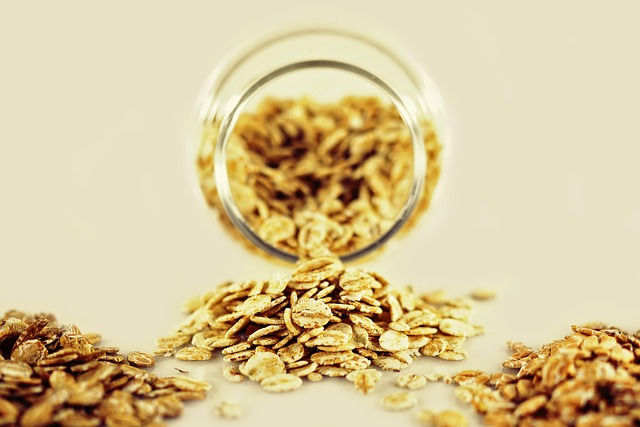Can whole grain bread cause bloating? Yes, whole grain bread can sometimes cause bloating, especially in people who aren’t used to eating much fiber or who are sensitive to certain components in wheat.
Whole grains are rich in fiber, an indigestible carbohydrate that your gut bacteria can ferment. This fermentation process often produces gas, which may lead to bloating.
Additionally, whole wheat contains gluten, a protein that can cause digestive discomfort in people with gluten sensitivity or related conditions.
Understanding Bloating and Whole Grain Bread
Bloating refers to the sensation of fullness or tightness in the abdomen, often accompanied by gas and discomfort.
Whole grain bread contains both soluble and insoluble fiber, which are beneficial for digestion. Soluble fiber helps regulate blood sugar levels and lower cholesterol, while insoluble fiber adds bulk to stools and aids in digestion.
However, the high fiber content in whole grain bread can sometimes overwhelm the digestive system, leading to gas production and bloating.
Learn more about the best anti-aging foods here.
Factors Contributing to Bloating from Whole Grain Bread
1. Fructans and FODMAPs
Whole grain bread, especially that made from wheat or rye, contains fructans, a type of carbohydrate that can be poorly absorbed in the small intestine.
These fructans are fermented by bacteria in the colon, producing gas and leading to bloating.
People with fructose malabsorption or those following a low FODMAP diet may experience increased bloating after consuming such breads.
Learn more about foods to flush your system and prevent diabetes here.
2. Gluten Sensitivity
Gluten, a protein found in wheat, barley, and rye, can cause digestive issues in people with celiac disease or non-celiac gluten sensitivity.
Symptoms may include bloating, gas, abdominal pain, and diarrhea. If you suspect gluten sensitivity, it’s advisable to consult a healthcare professional for proper diagnosis and management.
Learn more about foods that are bad for your kidneys here.
3. Yeast Intolerance
Some people may have an intolerance to yeast, which is commonly used in the fermentation process of bread. Consuming bread containing yeast can trigger bloating and other digestive discomforts.
Symptoms might appear hours after consumption, making it challenging to identify the exact cause.
4. Overeating or Eating Too Quickly
Consuming large amounts of whole grain bread or eating too quickly can lead to bloating. Eating rapidly may cause you to swallow air, which can contribute to bloating. It’s essential to eat slowly and in moderation to prevent digestive discomfort.
Learn more about not drinking water after eating these foods here.
Tips to Prevent Bloating from Whole Grain Bread
- Gradually Increase Fiber Intake: Suddenly increasing fiber intake can overwhelm the digestive system. Introduce whole grain bread into your diet slowly to allow your body to adjust.
It’s important to keep drinking, especially water. It encourages the passage of waste through your digestive system and helps soften poo.
- Stay Hydrated: Fiber absorbs water, and without adequate fluid intake, it can lead to constipation and bloating. Ensure you drink plenty of water throughout the day.
- Choose the Right Bread: Go for breads with minimal additives and preservatives. Some commercial breads contain high levels of sodium and other chemicals that can contribute to bloating.
- Monitor Portion Sizes: Consuming large portions of whole grain bread can lead to bloating. Stick to recommended serving sizes and balance your diet with other foods.
Learn more about what causes pooping undigested food here.
When to Seek Medical Attention
If you experience persistent bloating, abdominal pain, or other digestive issues after consuming whole grain bread, it’s essential to consult a healthcare professional.
Conditions like irritable bowel syndrome (IBS), celiac disease, or fructose malabsorption may require specific dietary adjustments and medical management.
Learn more about the dangers of a raw food diet here.
What to Expect at the Doctor’s Office
During your consultation, the healthcare provider will:
- Review Your Symptoms: Discuss the frequency, duration, and severity of your symptoms.
- Conduct Physical Examination: Assess your abdomen for signs of bloating or tenderness.
- Recommend Tests: May include blood tests, stool tests, or imaging studies to diagnose underlying conditions.
- Provide Dietary Guidance: Offer advice on managing your symptoms through dietary modifications and possibly refer you to a dietitian.
Learn more about what is considered whole grain cereal here.
A Word from GetMe Treated
Can whole grain bread cause bloating? Whole grain bread offers numerous health benefits, but it can cause bloating in some people due to its fiber content and other components.
By understanding the factors contributing to bloating and implementing the tips provided, you can enjoy whole grains
Learn more about the whole grains examples list here.
FAQs About Can Whole Grain Bread Cause Bloating
Can whole grain bread cause bloating?
Yes, due to its high fiber content and presence of fructans, whole grain bread can cause bloating in some people.
Is bloating after eating whole-grain bread normal?
Mild bloating can be normal, especially if your body is adjusting to increased fiber intake. However, persistent or severe bloating should be evaluated by a healthcare professional.
How can I reduce bloating from whole grain bread?
Gradually increase your fiber intake, stay hydrated, choose breads with minimal additives, and monitor portion sizes.
Can gluten-free bread cause bloating?
Gluten-free breads can still cause bloating if they contain high amounts of fiber or other fermentable carbohydrates.
Should I avoid whole grain bread if I have IBS?
People with IBS may need to limit high-FODMAP foods like whole grain bread. Consult a healthcare professional for personalized advice.
Is sourdough bread a better option for digestion?
Sourdough bread undergoes a fermentation process that may make it easier to digest for some people. However, it still contains gluten and should be consumed based on individual tolerance.

